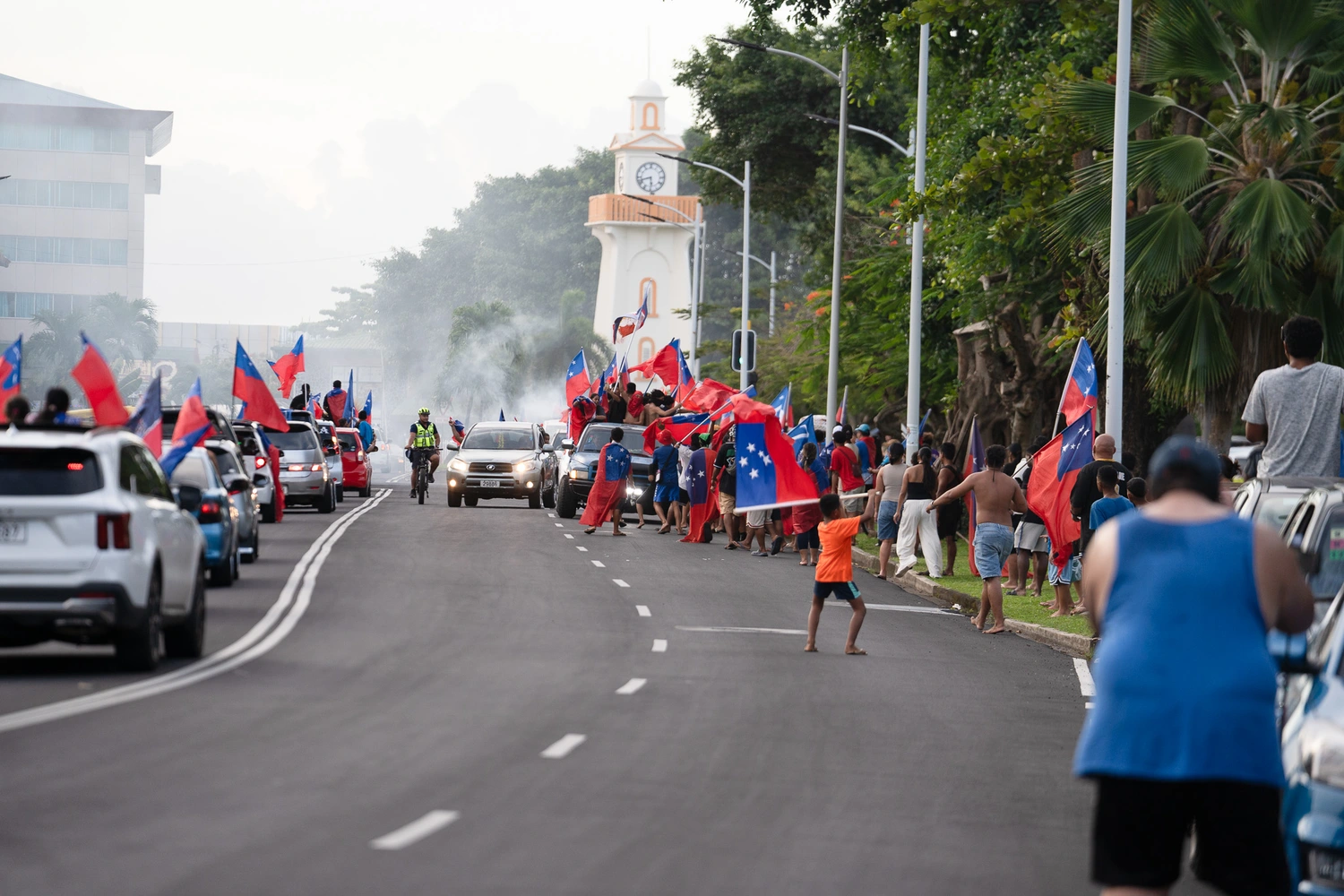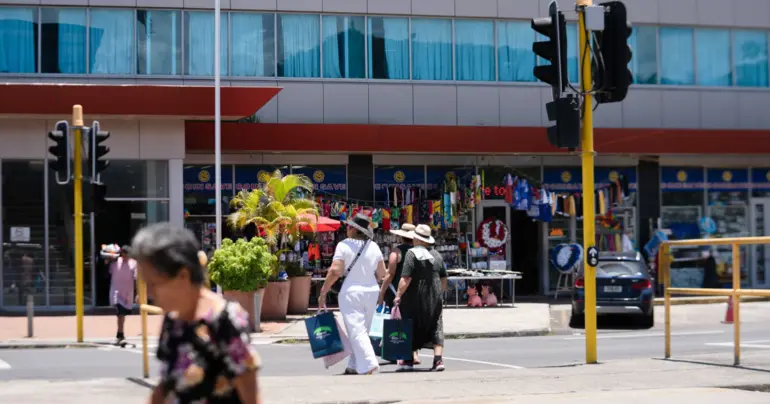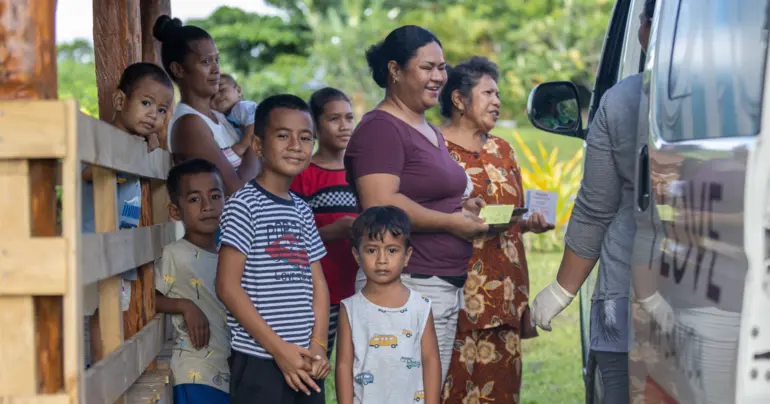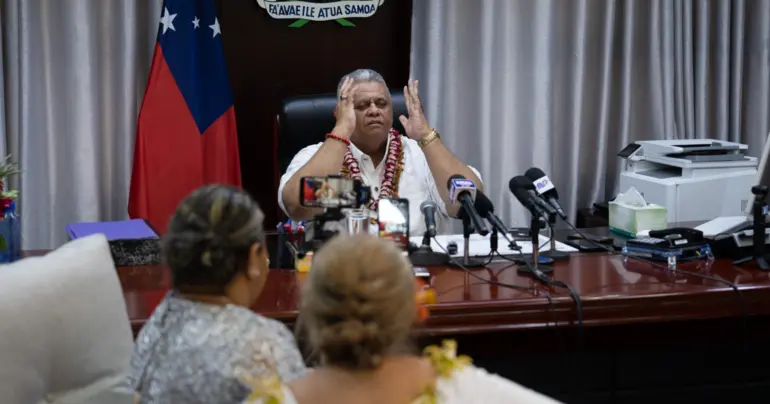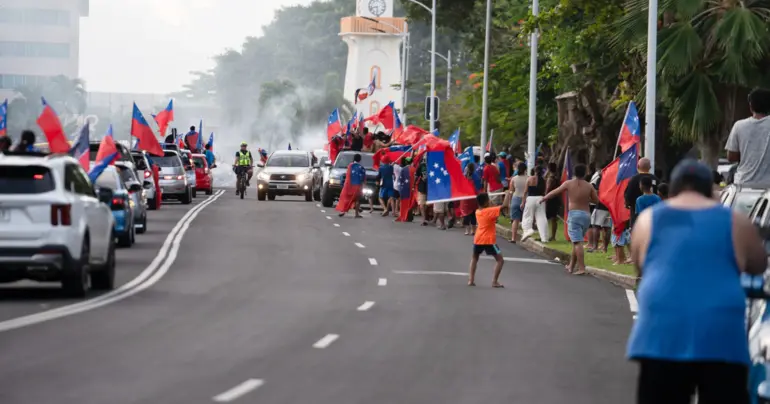No excuse for unsafe and dangerous behaviour
To parade or not to parade, that is the discussion that most are having. Some are concerned about the lack of safety shown by participants, while others argue that they have the right to support the national rugby league side.
The safety issue has been raised in parliament with the Finance Minister Mulipola Anarosa Ale-Molioo calling for a stop. She said someone would get hurt because of the failure to abide by basic safety rules. The pictures and videos from the parade show that Mulipola’s words carry weight, this is despite the police saying there were no arrests or injuries reported.
The minister also said she was concerned about the use of methamphetamine during the car parades. While the minister’s parliamentary privilege shields her from providing more clarity, this statement needs to be backed with evidence.
Pictures and videos from the parade show people, especially the young and the children, packed in trays of trucks and utes, cramped like sardines, with some almost spilling out. These vehicles are not stationary; they are moving, and some with speed. There have been instances where people have fallen off the tray during the parade.
The disregard for safety can be seen when people lost in euphoria run onto the roads where the car parades are happening. People try to stop traffic by dancing, and then there are bicycle riders who zig-zag across the moving cars. These are dangerous behaviours and of concern. Such actions undermine the spirit of the parades.
The parades to support national teams before they play is done in the right spirit. It is a gesture by fans at home shows what the game and the team mean to them. For most, watching the Toa Samoa play in real life is a dream, and the parades are perhaps the best way they feel they can support their teams. However, this is no excuse for unruly and unsafe behaviour. We also saw an incident where a teenager was chased down by the police.
From the first parade, the police should have clamped down on the safety violations and unruly behaviour. The issuance of tickets and arrest of unruly fans would have sent the message. This was not done, and on the second time, the police’s overzealousness led to incidents where police were abusing their authority, including the use of force on civilians. The police have a job to do, and that work needs to be done within the ambit of the law.
There can be a middle ground if the organisers and the enforcers meet and decide on the dos and don’ts of the parade. Toa Samoa co-captain Jerome Luai, when asked what drives the team, said the support from home. Surely, no one wants to stop people from supporting their Toa heroes, but safety has to be paramount.
In the past, people have fallen off the back of trucks and lost their lives or have been seriously injured. Safety is something that cannot be made a joke of. For people whose children are part of the parade, they must tell their children about responsible behaviour. Drivers do not need to race because they feel their vehicle is more modified and powerful; that is not the platform for that.
Some families and children come and watch the parade. Their safety should be considered as well. We all can support Toa Samoa or any other national team, but let us be civil about it. If there is going to be a parade next week, organisers have the responsibility to tell participants the safety rules they need to follow. Those who do not wish to follow them can stay out. Similarly, the police need to arrest or fine people who violate safety laws and put others at risk.
Go Toa Samoa.




